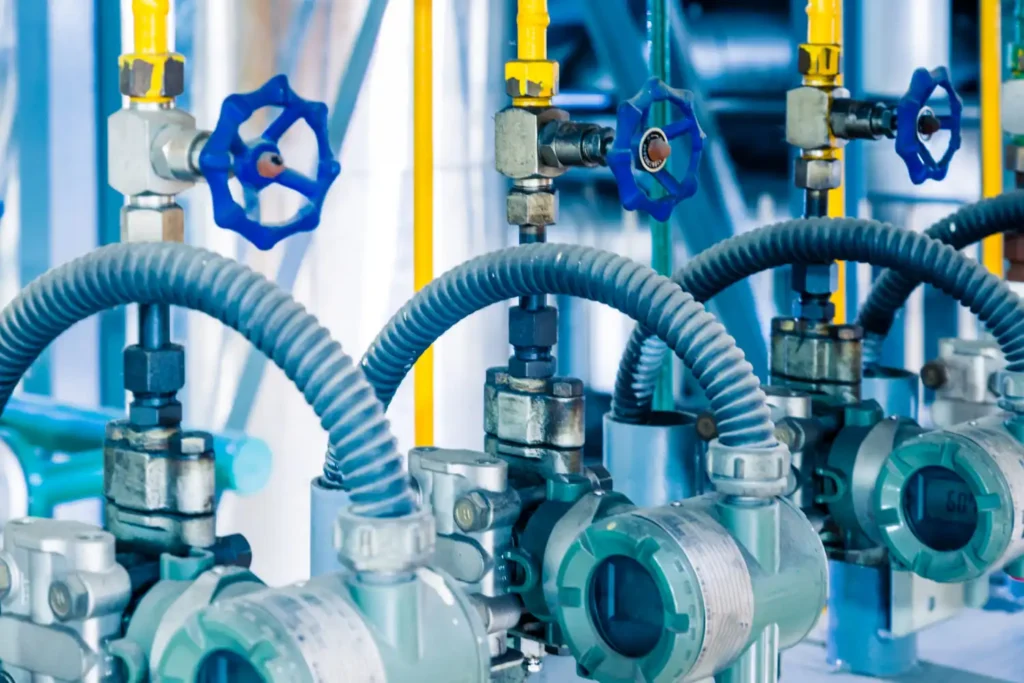
Top 5 Advantages of Using Hydraulic Filters in Hydraulic Systems
What Are Hydraulic Filters ?
A hydraulic filter is a portion of a hydraulic system that uses a porous filter element to force hydraulic fluid through to eliminate harmful particles. The filter element captures impurities and keeps them from returning to the fluid flow and harming downstream equipment. Water, dirt, and reactive compounds are examples of contaminants. Hydraulic oil filters operate on the micrometer scale, so they must be sized appropriately to remove even the tiniest particles.
Why Are Filters Essential in Hydraulic Systems?
Hydraulic filters significantly increase the lifespan of your hydraulic system and its parts. By reducing the intake of impurities and quickly eliminating new ones, filters keep a fluid clean of impurities.
Additionally, hydraulic filters guard against component failure caused by particle accumulation between tightly fitting parts or lubricated processes. When systems are protected from wear and tear, they are kept safer and less likely to malfunction.
An effective filter positioned correctly saves money and downtime from expensive replacements or repairs. Ensuring your hydraulic filter is the right fit for your equipment will increase its lifespan and productivity.
Read More: Types of filters are used in hydraulics oil filters?
Overview of Hydraulic Systems
Key Components of Hydraulic Systems
The main parts of a hydraulic system, which employs fluid pressure to do mechanical work, are:
Hydraulic Fluid: Hydraulic fluid needs to have certain qualities to guarantee the best possible system performance and lifetime. The operating temperature range and the system’s intended performance parameters are considered when choosing the fluid’s viscosity.
Reservoir: This is a special storage tank used to contain the hydraulic fluid, which is often not under pressure. Its main job is to ensure the system has a steady and dependable flow of fluid, which is necessary for effective operation.
Valves: Valves are crucial in regulating the direction and flow of hydraulic fluid. By selectively allowing or preventing flow as needed, they serve as gatekeepers and enable accurate control over fluid routes.
Actuator: Actuators, sometimes called hydraulic cylinders, transform hydraulic energy into mechanical energy. They move themselves mechanically by harnessing the physical force of the compressed hydraulic liquid.
Common Challenges in Hydraulic Systems
Even though hydraulic systems are efficient, several issues can impair their functionality and cause expensive downtime. Typical difficulties include the following:
Leaks: Wear and tear, malfunctioning fittings, or broken seals can all lead to hydraulic fluid leaks, a frequent issue. These leaks jeopardize the system’s effectiveness and safety and cause the loss of costly hydraulic fluid.
Overheating: Although heat is a typical result of hydraulic system performance, excessive heat accumulation can seriously harm the system. High outside temperatures, low fluid levels, or a broken cooler are some of the causes of overheating.
Pressure Spikes: Abrupt and severe pressure spikes can seriously harm the parts of a hydraulic system, resulting in leaks, malfunctions, or safety risks. Pump cavitation or malfunctioning valves can cause these problems.
Seal Failure: A seal’s failure can result in leaks, contamination, or a loss of control. Seals are essential parts of a hydraulic system. Wear and tear, high temperatures or insufficient lubrication are common causes of seal failure.
Top 5 Advantages of Using Hydraulic Filters
1. Enhanced System Efficiency
One key benefit of hydraulic filters is that they significantly increase the hydraulic system’s efficiency. Hydraulic filters guarantee that the hydraulic fluid stays pure and uncontaminated by stopping the accumulation of impurities such as dirt, corrosion, and particles.
2. Prolonged Equipment Lifespan
Over time, contamination with water, air, or other fluids can cause hydraulic fluid to deteriorate. This deterioration may shorten your hydraulic fluid’s lifespan, which could also raise maintenance expenses. AA hydraulic filter can help your hydraulic fluid last longer by capturing impurities before they lead to degradation.
3. Cost Savings
These filters prevent contamination, lessening the need for regular upkeep, repairs, and part replacements. Optimal system performance is ensured by maintaining clean hydraulic fluid, which can result in reduced energy consumption and operational costs.
4. Enhance System Performance
Hydraulic fluid contaminants can result in obstructions and clogs that lower system effectiveness and raise operating expenses. By eliminating these impurities, hydraulic filters keep your system operating efficiently.
5. Environmental Benefits
Additionally, using Hydraulic filters can benefit the environment. These filters lessen the need for regular fluid changes and disposal by keeping impurities out of the hydraulic fluid.
How to Choose the Right Hydraulic Filters
To guarantee that your hydraulic system runs as efficiently as possible, selecting the appropriate Hydraulic Filter is crucial.
Drop in Pressure: Several factors influence the choice of hydraulic filter for equipment. Designers and maintenance crews may choose the appropriate filters to prevent damage to hydraulic subsystems by knowing what to check for. An essential factor in filter sizing is knowing the fluid’s viscosity. Ignoring this factor could result in the usage of too small filters, which would raise operating expenses, cause excessive pressure drops, and require a larger footprint.
Pipe Size and Flow Rate: Knowing your system’s operating pressure is the first step in choosing a hydraulic filter. To guarantee correct functioning, pressure filters and return line filters need to have a pressure rating that corresponds to the system pump’s pressure. A filter that is not pressure-rated can collapse and release debris into the hydraulic system.
Cost vs. Quality: Strike a balance between filter quality and your budget. Cost is a consideration, but by lowering maintenance and replacement expenses, purchasing a higher-quality filter can result in long-term savings.
Working with a reliable source, such as Anand Filters, is crucial when buying hydraulic oil filters in India to ensure they meet local operating standards and legal requirements.
Conclusion
Hydraulic Filters offer hydraulic systems several benefits. By shielding delicate parts from impurities and avoiding needless downtime, these filters are crucial to the seamless operation of hydraulic systems. By selecting the appropriate filter based on your system’s needs, you may optimize your hydraulic system’s advantages and guarantee long-term dependability.
Businesses can ensure that their hydraulic systems function smoothly and efficiently by investing in high-quality products, like those provided by Anand Filters, whether they are looking for hydraulic filters or hydraulic oil filters in India. This will ultimately prolong the life of their equipment and support sustainable practices.

